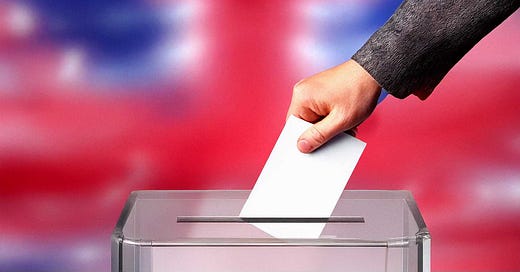Politics and Living Your Best Life
Too much politics is bad for your mental health. But if we want to live lives based on rational values, we must engage in politics—in a certain way.
Political discourse today is an embarrassment. What was once a debate about proper governance has degenerated into an emotional cussing match in which principles are all but forgotten. It's become so emotionally charged that many people are simply giving up on politics altogether. The low turnout at the last UK general election and the popular disdain a…
Keep reading with a 7-day free trial
Subscribe to Reason for Living to keep reading this post and get 7 days of free access to the full post archives.





